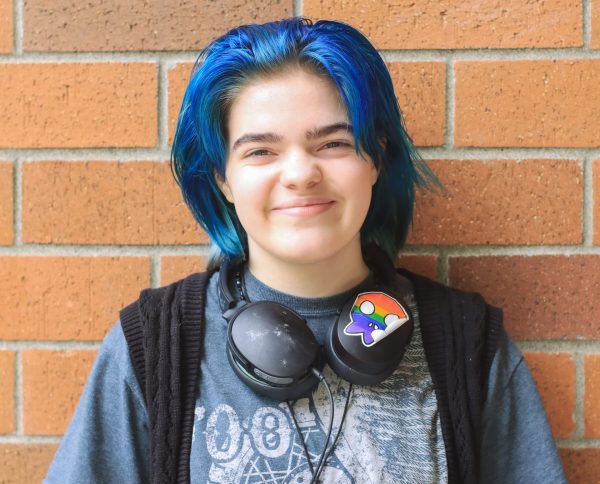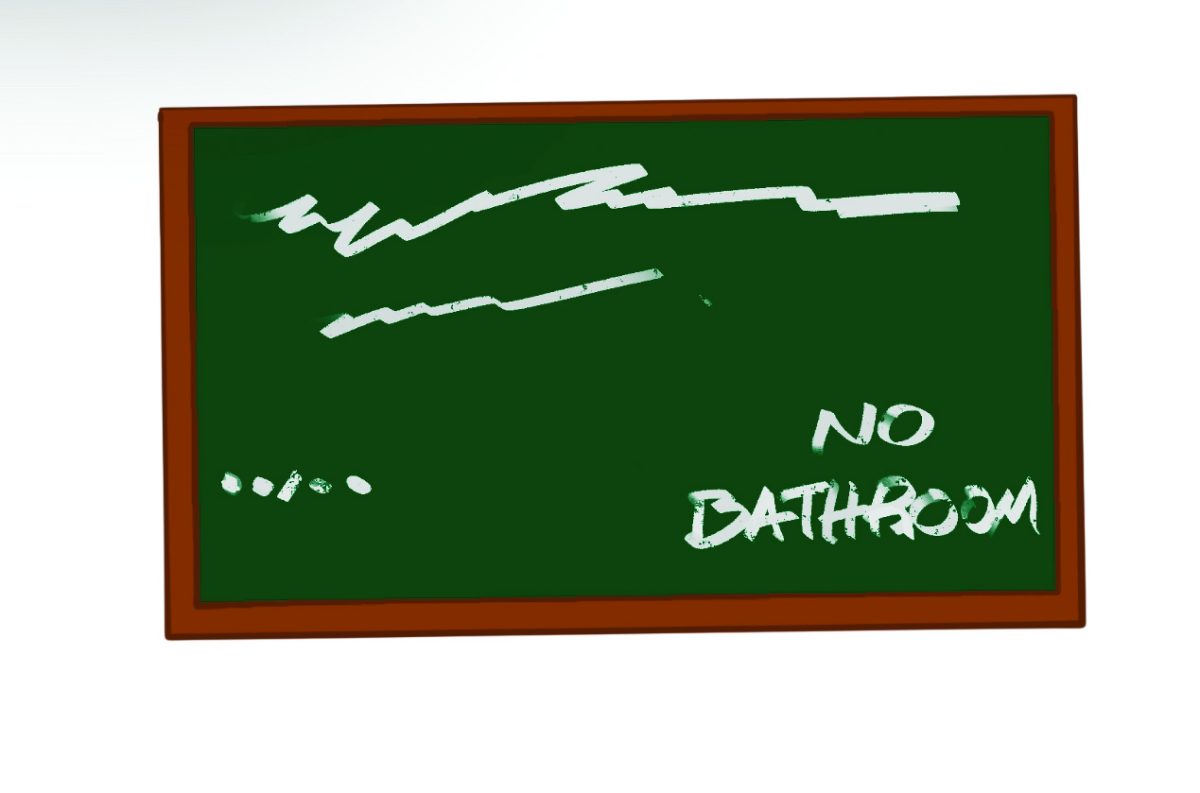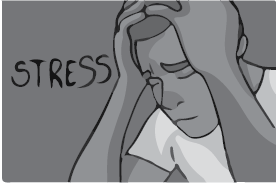If you are currently a student or have ever been one, then you are familiar with that feeling of success and accomplishment when you’ve aced a test or did well on an assignment, as you rightfully should after working so hard. But after that momentary victory, you start to feel anxious. Sure, you just got a good grade, but now you have to worry about getting the next good grade, and another after that.
The pressure is even worse if you just got a great grade. You wonder, “will I be able to measure up again?” Because everyone knows that if you fail, you’ll disappoint everyone, and most of all frustrate yourself because you feel you could’ve done better. You always could’ve done better. Or at least, that’s what you think. At least, that’s what I thought. In the past, I never had a word for this craving to be a smart individual—to be recognized as a smart individual. Then I learned about something that couldn’t have described it more perfectly. Academic validation.
It’s really an unhealthy addiction, dare I say life-threatening one, that the competitive nature of school creates for so many students. With academic validation, you equate your self-worth with your academic success. Although wanting to do well in school may not seem harmful on the surface, when it gets to an extreme level it becomes dangerous for a multitude of reasons.
Exhibit A: it’s time-consuming and draining
Academic validation can and will make you work. A lot. This isn’t inherently a bad thing, but it becomes a problem when you start to overdo it. If you want to get praised, then you’ll go above and beyond with your work, maybe doing extra things that aren’t necessary to get a good grade in the first place just for the sake of feeding the desire to excel. Don’t get me wrong, if you’re passionate about an assignment and truly want to elevate your work to the next level, by all means go for it. But if you are motivated by the fact that you’ll gain some recognition, maybe it’s time to reevaluate your choices and whether or not it’s healthy.

Looking back, I regret the times I’d spend hours into the night, even early morning, working on some English assignments, yearning for the compliments I could get from my teacher. If we read a short story, I’d analyze every nook and cranny of that story, inputting every single interpretation I could come up with and even what Google had. Yes, I would look things up on Google and do extra research on my assignments unasked. It was exhausting.
I spent more than enough time squinting my eyes, looking over the same passages over and over again trying to get into the nitty-gritty details. I often depended on caffeine to get me through the school day, but also through unhealthy all-nighters. It took so much out of me, I felt like a zombie. It got to the point where my English teacher said that while they appreciated my work, I could tone it down a notch. They wanted to make sure I also got some rest and took care of myself. So even my English teacher noticed I was being a little overkill with my work.
Looking back, I agree. While I was proud of myself, that feeling was short-lived and paled in comparison to my feelings of exhaustion and fatigue. I’d spend all my time either sleeping or working in my dark, desolate room, aging like fine wine. But unlike wine, this process wasn’t good for me. My time could’ve been used more wisely. Not to mention how it negatively impacted my social life, which brings me to…
Exhibit B: it harms your relationships
Given that academic validation can drive you to do nothing but study and work for days on end, it’s easy to forget to make time for other people. You may have to cancel plans with friends and family, or reject them entirely. I remember a time when my friends invited me to go ice skating around wintertime, and I said no due to schoolwork. I was frustrated because I didn’t know what I wanted. Of course I want to spend time with my friends, but at the same time, I would’ve felt guilty knowing that I could use the time to study. So I studied. In hindsight though, I made myself too busy with school because I thought I didn’t have a choice.
Another aspect contributing to this was that I didn’t rely on anyone. You see, academic validation can lead you into thinking that you have to accomplish everything on your own. If you don’t, your mind tells you you’re essentially cheating and took a shortcut because you weren’t smart enough to figure things out yourself. This made my process of studying and doing work a lot longer, thus making me busier for longer periods of time. But this was so harmful to me, to the people who cared about me, and to the people who wanted to spend time with me.
Exhibit C: it leads to self-comparison
One of the driving forces of academic validation is getting that recognition from your teachers and peers. This is especially relevant in self-comparing, as students will not only look at the rubrics but also will look at their classmates. It’s not bad to look at your peers as examples, but can be unhealthy when it gets to the point of insecurity. It almost feels like a contest to see who can do better, slowly eating you up inside as you wish you could be as good as so-and-so. If someone could impress the teacher, then they would also have those “being smarter bragging rights.” It can make you feel small and lesser for not doing as well, and it’s a mentality that is unfortunately inherent in the school system. I know I feel bad when I see my peers efficiently working in class, probably on some masterpiece, whereas I’m staring at a blank document, barely getting my thoughts collected. I still picture and experience nervously glancing around the classroom, hearing people type away with ease. It’s haunting.
There was no one in particular I would compare myself to, but I kept an eye on the people who I deemed the smartest

and who I knew excelled in the classroom as if I was competing against them. How could I be like them? How much time do they spend working on an assignment? What’s their study schedule like? I tried to evaluate them and figure them out as if they were some type of perfect student formula to follow. It took a long time to realize that everyone has different work ethics, and that’s okay. I tend to work at a slower pace and can focus more when I’m alone, but for the longest time, I believed that I was just not hardworking enough. Like apples and oranges though, we’re all different.
Now, all of these aspects of academic validation come together to this underlying danger—depression. While school is not always the cause of one’s depression, it can still contribute to it. Those feelings of inadequacy push you to the limit until you finally hit burnout. For some, the build-up could take days, months or even years. Sometimes, it’s not a linear journey and will be filled with ups and downs.
For me, I entered freshman year with this toxic mentality and crashed in the middle of my sophomore year. In between those years, I was diagnosed with severe depression and signs of being suicidal. I tried to cope by striving for even more academic validation, but that did the opposite of helping. Eventually, after trying so hard, I just wanted to give up. With a lot of self-reflection and getting proper help though, I’ve come to terms with my limits and what I really want in life, understanding that how I do in school isn’t a determining factor of how I am as a whole person.
Because of how the education system is structured today, there is more emphasis on students’ success instead of their growth. It pushes students to become labor robot machines and perform consistently at high, specific standards. If you don’t produce those specific results, academic validation makes you feel like you simply didn’t work hard enough, ultimately making you feel like you have no value.
Okay, so what? Fight it. Fight the urge to be the perfect student. Fight the urge, please. Do the work to satisfy yourself, not for anyone else. And remember that there is so much more to a person than their grades. School is only a fraction of our lives, and it should never become more involved than that fraction.












